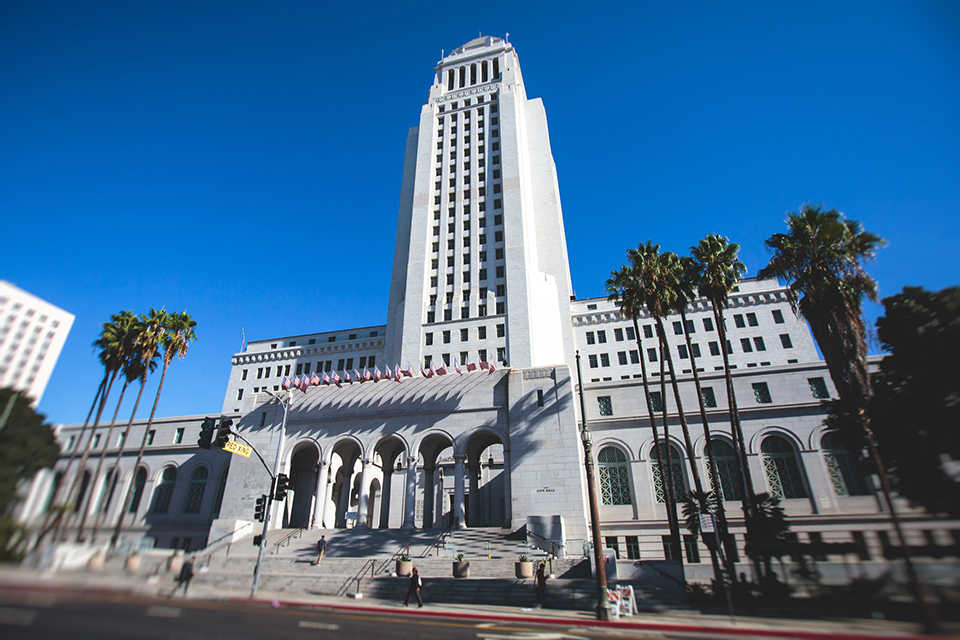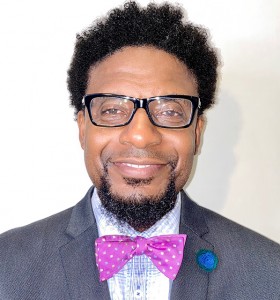CSUN Political Science Professor Part of Effort to Re-Imagine City Governance

CSUN political science professor Boris Ricks is one of six researchers who make up the L.A. Governance Reform Project. They have joined forces to re-imagine how the city of Los Angeles should be governed. Photo by Nikolay Tsuguliev, iStock.
The scandal caused by the leak last fall of Los Angeles City Councilmembers using racist language as they discussed redistricting has prompted six local scholars — including California State University, Northridge political science professor Boris Ricks — to join forces to re-imagine how the city should be governed.
The L.A. Governance Reform Project (LAGRP) — which includes researchers from CSUN, UCLA, USC, Cal State Los Angeles, Pomona College and Loyola Marymount University — has taken on the task of developing proposals that truly reflect the interests of the city’s nearly 4 million residents, provide transparency and hold city leaders accountable.

Boris Ricks
“What we heard on those leaked tapes was disturbing, to say the least,” said Ricks, director of CSUN’s Center for Southern California Studies and a faculty member in the College of Social and Behavioral Sciences. “It underscored, for all of us, that we can no longer govern effectively. We can no longer operate absent of ethics. We need an alternative.”
Ricks said the LAGRP’s members’ expertise and experience in governance research, local politics and intergovernmental relations gives them the tools necessary to develop proposals that “help ensure that we have a more egalitarian and representative democracy at the local level.”
In addition to Ricks, the group includes Gary Segura, dean of UCLA’s Luskin School of Public Affairs; Ange-Marie Hancock, a USC professor of gender studies and political science; Raphael Sonenshein, executive director of the Pat Brown Institute for Public Affairs at Cal State L.A.; Fernando Guerra, director of the Center for the Study of Los Angeles at Loyola Marymount; and Sara Sadhwani, assistant professor of politics at Pomona College.
LAGRP’s first task will be to provide policy recommendations for an independent redistricting process to be presented to policymakers in the coming months.
“The ultimate goal is fair and equitable representation in the city of Los Angeles,” Ricks said. “We have a population of just less than 4 million with 15 council seats. With those numbers, it’s clear that basic needs in some communities can slip through the cracks.
“If you listen to the tapes, you hear them, the councilmembers talk about manipulating the redistricting process,” he said. “Redistricting has everything to do with race and representation. The tapes make it clear that the need for meaningful governance reform in the city of Los Angeles is long overdue.”
LAGRP members are seeking input from the academic, governmental, civic and activist communities. They also plan to hold a series of public forums to ensure that residents from all corners of the city have a say in the process. Ricks said he hopes to host one of the forums at CSUN.
Once they’ve made their redistricting recommendations, Ricks said the group will take on such topics as city council expansion, fair representation, ethics and land-use reform.
“One of the things we must wrestle with is if we expand the size of the council, will that actually yield more equitable representation? Will minoritized groups and other overlooked communities who have fallen through the cracks be better represented?” he asked. “All you have to do is drive through Los Angeles to see that the needs of one community may or may not be the needs of another community. West Los Angeles looks a little bit different than South Los Angeles, which looks a bit different than East Los Angeles or north Los Angeles, which we call the San Fernando Valley. The question is, how do we achieve this idea, this notion of fair and equitable representation? How do you ensure that each racial and ethnic group feels like they have a voice?”
LAGRP will issue updates on its work in the coming weeks and plans to be in operation throughout 2023.

 experience
experience